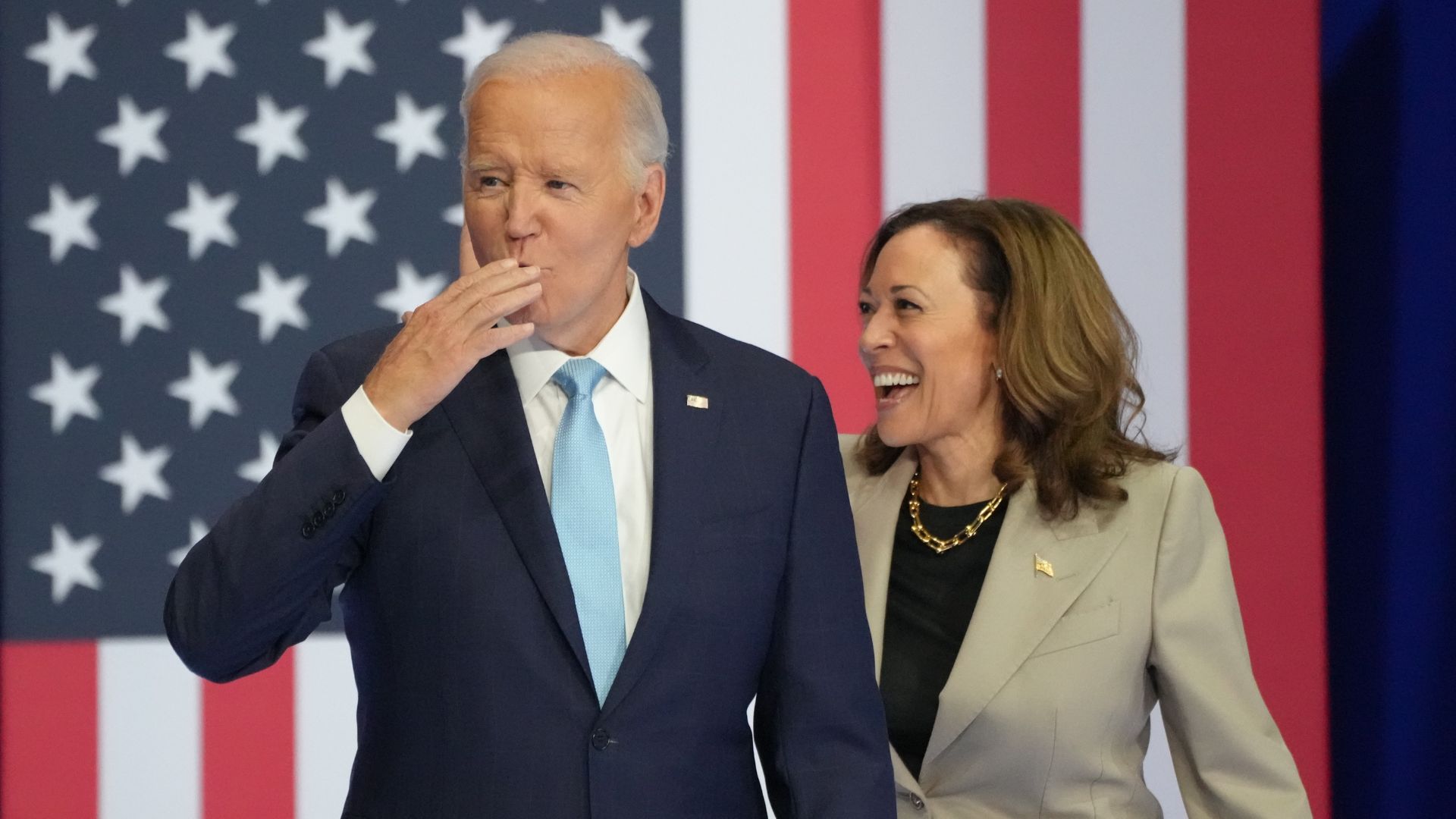
Newly released audio from Special Counsel Robert Hur’s interview with Joe Biden has triggered renewed scrutiny over efforts by Democratic lawmakers and media outlets to discredit concerns about Biden’s cognitive condition.
The audio, published by Axios on Friday, offers a first-hand account of Biden’s difficulties recalling key facts during the investigation into his handling of classified documents.
The audio, which closely matches previous transcript descriptions, shows Biden struggling to remember significant dates, including when his son Beau passed away, as well as key events from his time as vice president.
Trump’s Sovereign Wealth Fund: What Could It Mean For Your Money?
The material has fueled criticism not only of Biden’s fitness for office but of efforts by political allies and media figures to dismiss those concerns when Hur’s report was initially released in February 2024.
In his report, Hur concluded that no criminal charges would be pursued but noted that Biden was a “sympathetic, well-meaning, elderly man with a poor memory.”
That phrasing drew strong backlash at the time from Democratic lawmakers including Rep. Adam Schiff (D-CA), who accused Hur of making political judgments.
This Could Be the Most Important Video Gun Owners Watch All Year
During a congressional hearing, Schiff said to Hur, “You understood what you were doing. It was a choice. You certainly didn’t have to include that language.”
He went on to call Hur’s descriptions “gratuitous” and suggested they were crafted to assist political opponents. Schiff later claimed on CNN that Hur had “politically slimed” the president.
FLASHBACK: Adam Schiff raged at Robert Hur for daring to include an accurate assessment of Biden’s cognitive condition in his report.
The Big Lie about Biden’s cognitive issues was carried out at all levels of the Democrat/Legacy Media machine. https://t.co/LfTXAz8kMZ pic.twitter.com/VzTGngZqjG
— Western Lensman (@WesternLensman) May 16, 2025
It is now unclear whether Schiff had knowledge of the interview audio at the time he made his statements, or whether his criticisms were based solely on the publicly released report.
Hur defended his findings during the hearing, maintaining that his report accurately reflected Biden’s performance and that the language used was necessary to explain why prosecution was not recommended.
Rep. Jamie Raskin (D-MD) also criticized Hur, accusing him of taking “cheap shots” in his characterization of the president.
FLASHBACK: Jamie Raskin calls Robert Hur’s accurate assessment of Biden’s cognitive issues “ridiculous cheap shots” —
— then goes on to defend Biden’s mental sharpness. pic.twitter.com/7dyjHc0mUG
— Western Lensman (@WesternLensman) May 16, 2025
Both Schiff and Raskin previously served on the January 6th Committee and were prominent voices in the now-debunked Russia collusion investigation.
The criticism extended to members of the Biden-Harris administration.
Then-White House Press Secretary Karine Jean-Pierre had condemned Hur’s report following its release, but has since largely disappeared from public view.
REPORTER: “When can we talk to the president’s doctor and how come he hasn’t been asked to come out here and talk to us given the Hur report?”
KJP: “Special Counsel Hur is, as far as I remember, a Republican, a prosecutor. He’s not a medical doctor.”
REPORTER: “Can we talk to… pic.twitter.com/veO7HWE41R
— Townhall.com (@townhallcom) February 12, 2024
Vice President Kamala Harris also pushed back, calling the report “gratuitous, inaccurate, and inappropriate.”
Here is a flashback of @KamalaHarris and her response to the HUR report.
These people are embarrassing, and they have absolutely no shame anymore. And nobody should let them live this down. pic.twitter.com/QYl36J5qho
— Insurrection Barbie (@DefiyantlyFree) May 17, 2025
The controversy has also drawn attention to the media’s handling of the matter.
News outlets including CNN, The New York Times, The Washington Post, and MSNBC previously downplayed the cognitive concerns raised in Hur’s report, framing them as typical lapses for a person of Biden’s age.
On-air commentators and media analysts dismissed the report as politically motivated and repeated White House talking points.
Here’s three minutes of legacy media telling us how sharp Joe Biden was. pic.twitter.com/11LaJVoM5X
— Clay Travis (@ClayTravis) May 17, 2025
CNN anchor Jake Tapper hosted Schiff following the report’s release and echoed concerns about Hur’s intent.
Tapper, who recently authored a book addressing Biden’s cognitive state, has not publicly addressed the release of the interview audio or his earlier framing of the issue.
.@AdamSchiff: Robert Hur chose to “politically slime” Biden. Watch the full interview here: https://t.co/OYRx9a7Kkr pic.twitter.com/PXRsqKnzg8
— The Lead CNN (@TheLeadCNN) March 12, 2024
Other media figures such as Oliver Darcy and Brian Stelter also criticized conservative outlets for raising alarms over Biden’s condition.
The release of the audio has revived calls for further investigation into how information about Biden’s mental state was handled by political and media figures.
As of now, no public apologies or corrections have been issued by any of the elected officials or journalists who previously criticized Hur’s report.
The Biden interview was part of a broader investigation into the former president’s handling of classified documents, including materials related to national security and foreign policy.
Hur concluded that Biden’s memory issues would make prosecution unlikely to succeed, even if the evidence supported a legal case.
The interview took place behind closed doors, but the transcript was released in 2024.
Calls from lawmakers for the release of the actual audio were initially blocked by the White House, which cited executive privilege.
The leak now provides the first unfiltered glimpse into the president’s responses—and has reignited a national debate over transparency, accountability, and the role of the press in shaping public perception.
Connect with Vetted Off-Duty Cops to Instantly Fulfill Your Security Needs



![‘It’s a Recipe for a Hundred Years of National Dominance’: Stephen Miller [WATCH]](https://www.right2024.com/wp-content/uploads/2025/05/Stephen-Miller-Completely-Obliterates-CNN-Host-Over-Her-Illegal-Immigration-350x250.jpg)

![Trump Posts Hilarious Pope Meme, Leftists Immediately Melt Down [WATCH]](https://www.right2024.com/wp-content/uploads/2025/05/Trump-Posts-Hilarious-Pope-Meme-Leftists-Immediately-Melt-Down-WATCH-350x250.jpg)

![Wild Road Rage Brawl Erupts in Milwaukee [WATCH]](https://www.right2024.com/wp-content/uploads/2025/05/Road-Rage-Turns-Violent-in-Oregon-Minivan-Mows-Down-Motorcyclist-350x250.jpg)


![Karoline Leavitt Calls for Jill Biden to Answer for Joe's Cognitive Decline Cover-Up [WATCH]](https://www.right2024.com/wp-content/uploads/2025/05/Karoline-Leavitt-Calls-for-Jill-Biden-to-Answer-for-Joes-350x250.jpg)
![Bessent Exposes Media Lies About April’s Stock Market Performance [WATCH]](https://www.right2024.com/wp-content/uploads/2025/04/Bessent-Exposes-Media-Lies-About-Aprils-Stock-Market-Performance-WATCH-350x250.jpg)





